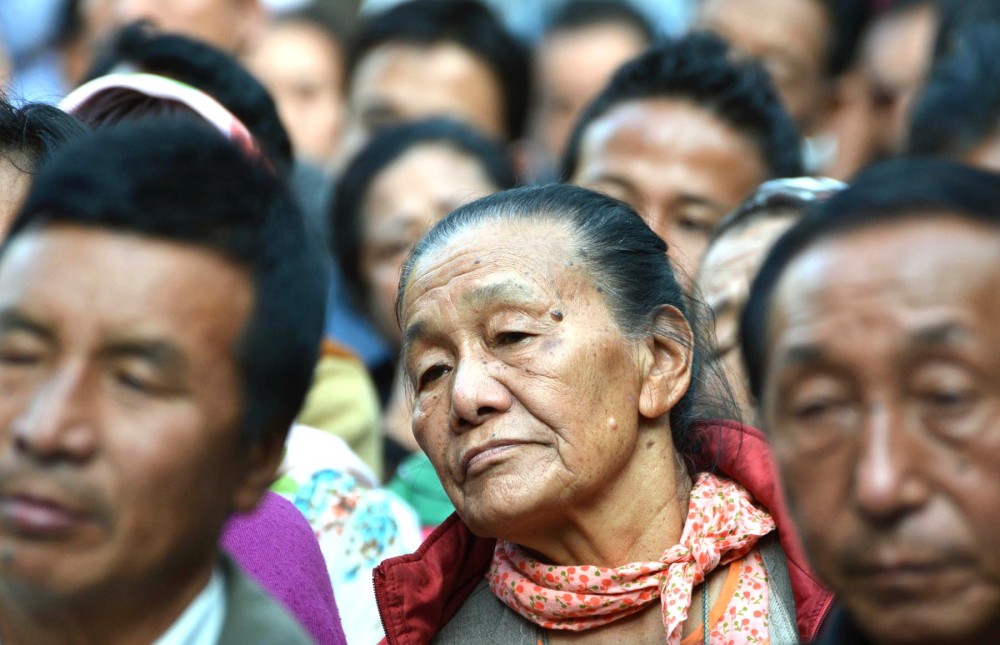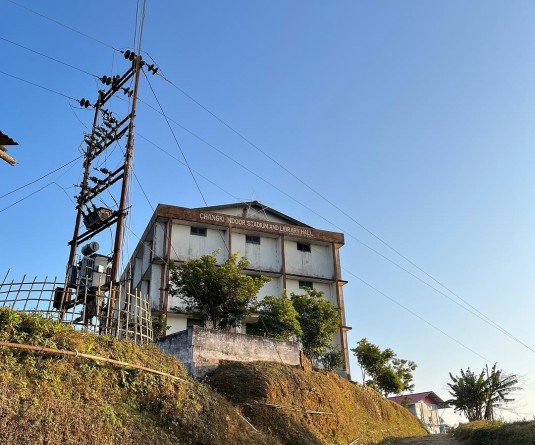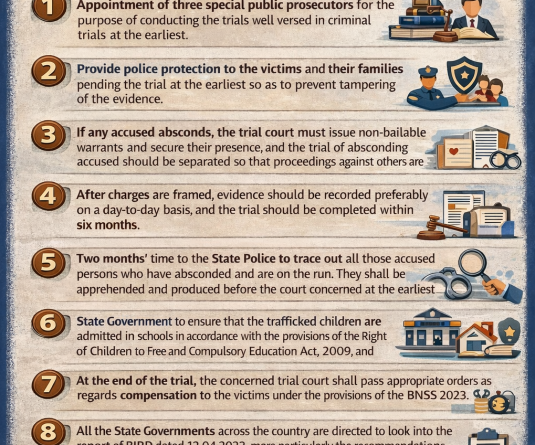Women too want their share of say in politics. In this image an elderly woman listens attentively during a campaign rally in Dimapur. (Caisii Mao Photo)

Renchano Humtsoe
Morung Express News
Dimapur | February 13
The walls are adorned with posters of candidates pleading for votes. Discussions are abuzz in kitchen, living room, office, and almost everywhere. Nagaland is preparing for its 12th Legislative Assembly election and its fever has spread across the state.
On one hand, the streets are busy with thunderous political chants, while on the other, the newspapers are flooded with “Declarations”, where a village, group, or a clan is openly declaring their support for their candidate. One can only use one’s imagination to understand the rationale behind this phenomenon, but one thing that stands out is the question, ‘who decides to vote for whom’.
“We were never given the right to choose,” says Angin who will vote first time on February 23. “The family decides, and it’s like religion that we are bound to follow,”
Patriarchy in Naga society is not limited to family or social affairs. It is well rooted in politics as well. The patriarchs in the form of several councils and unions decide whom one should vote for, as is evident in the newspapers. The democratic rights of women as well as those not involved in the ‘groups’ are ignored, making politics an exclusive affair in the context of Nagaland.
Nagaland has 188 candidates contesting for the 60 legislative assembly seats, out of which, there are only two women candidates. Dr. Yangerla (Independent), one of the two, representing 27 Mokokchung Town A/C says, “There is a deep unexpressed longing in the minds of women to strengthen the foundation of Naga society. I genuinely feel that God given wisdom to women must be freely shared with men as equal partners in building an enlightened society.” Inadequate personal involvement in politics by Naga women is nothing new. Nagaland state has so far seen only one female Member of Parliament since its statehood in 1963.
It does not get easier for women to establish a position in a male-dominated political arena, where menfolk have been ruling since the beginning. “Women are always in the periphery. They are never given the chance to come to the fore,” says Prof. Temsula Ao, Chairperson, Nagaland state commission for women. “We see that in all the parties. They do no have ‘validity’ in the party; they are a mere workforce. In order to give them (women) proper position, the mindset of the men has to change.”
There is neither a system in place to elevate women’s active participation in decision making bodies. Recently, there was uproar in the state regarding implementation of 33% reservation for women in municipal and town council election. Several Naga civil organizations rallied against it saying it violates Naga customary law. Younger generations too had their opinions heard by taking it to social networking sites like Facebook. The state government eventually decided to reject the reservation and the case was taken to the Supreme Court by the Naga Mothers Association (NMA).
One of the many reasons women are reluctant to enter politics could be attributed to societal structure where gender distinction is still widespread.
“Culturally, women are nurtured as domestic keepers whereas men, as public leaders,” points out Eyingbeni, Senior lecturer, Clark Theological College, Mokokchung. “So in tradition oriented Naga society, women are not encouraged, either by personal complacency or societal restriction, to involve in public leadership especially politics.”






